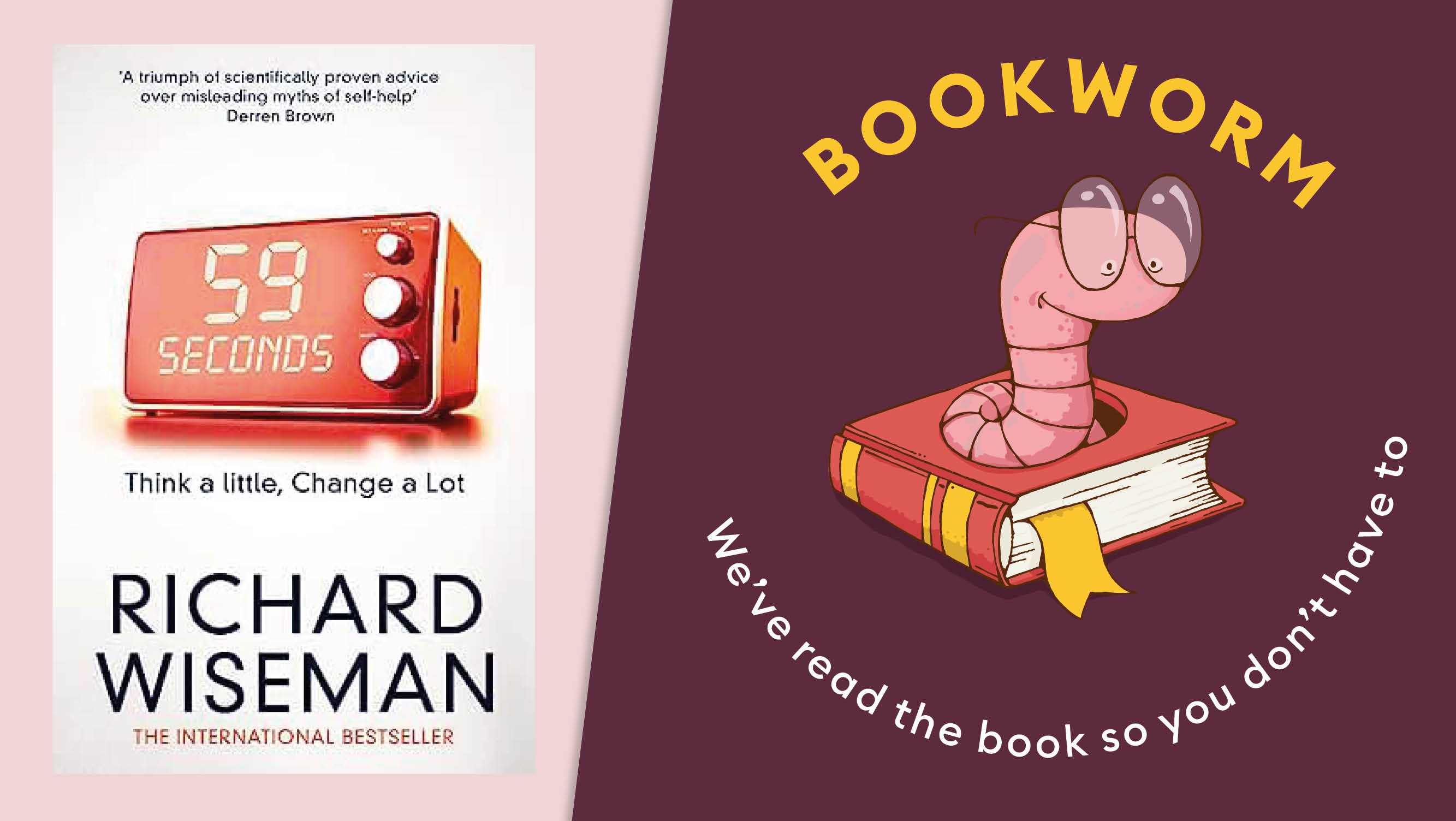If we think a little, we can change a lot, promises professor Richard Wiseman.
What's this book about?
The self-help industry is failing to deliver on its promises. Rather than improving motivation, relationships and creativity (as it says on the tin), it's actually leading us away from these goals and making us more dissatisfied. Yet there are proven routes to a more fulfilled and happy life, if only we look to science for the answers.
That’s the premise explored by Professor Richard Wiseman – an experimental psychologist, author and keynote speaker, who has written several bestselling books, including The Luck Factor and Quirkology.
In 59 Seconds, he looks at the science of “rapid change” with a view to proving that if we “think a little” we can “change a lot”. What he aims to show is that, by learning from research, we can significantly improve key aspects of our lives without it taking either too much time or too much effort. And with no need for mood diaries or affirmations either.
So, what does the self-help industry do wrong?
In a phrase: the positive visualisation bandwagon.
The idea that to achieve our goals (be it a flatter stomach or glittering career) we must first visualise ourselves attaining said goals has long held sway in the self-help world. However, according to research, positive visualisation is not just ineffective but counterproductive.
That’s because to think we have succeeded blunts the edge of our ambition, resulting in less self-help and more self-hinder.
Could you give a tangible example?
Yes. Wiseman cites a study from the University of California, where students were asked to imagine, for a couple moments each day, that they had received a high grade – and how good this made them feel.
The researchers discovered that far from seeing their achievements boosted, members of this group achieved lower exam grades than a control group whose members were asked to do nothing. Significantly, the first group had also studied less; probably because, when we conjure up the idea of success, our brains have a habit of falling for the trick, allowing us to ease off the gas.
Right. What does work, then?
What definitely works is creating a plan – ideally one broken up into sub-goals, each with a step-by-step process that feels achievable rather than intimidating.
It also helps to share our goals with friends and family because, as psychologists have long known, when we make our plans public, we are far more likely to follow them through.
What other practical lessons can I take away from the book?
Lots – many of which are surprising – and sometimes counterintuitive (though all are backed up by robust science).
For example, we can improve our chances of succeeding in an interview by maintaining a genuine smile, admitting our failings early on and keeping calm if we make a mistake.
And we can grow more creative by avoiding brainstorming, distracting our conscious mind and surrounding ourselves plants and flowers.
Anything else?
Another important takeaway is the advantage of a 'benefit-finding' mindset.
In a study at the University of Miami, more than 300 undergraduates were asked to remember an incident in their lives that had left them feeling hurt or offended. One group was then asked to focus on how this had affected them negatively, while another was asked to focus on the benefits that had emerged. For example, the experience making them a stronger or wiser person.
Perhaps unsurprisingly, those who focused on what they had gained were better equipped to manage their anger and unhappiness. And this can hold true even in more extreme cases, such as being diagnosed with a serious illness, where focusing on the genuine benefits (such as becoming more empathetic to other people's health problems) – rather than falling for the platitudes of positive thinking – can enhance coping abilities.
What am I most likely to say after reading this book?
“I could achieve my ambitions in minutes, not months.”
What am I least likely to say after reading this book?
“A multi-billion dollar self-help industry can’t be wrong…”
















